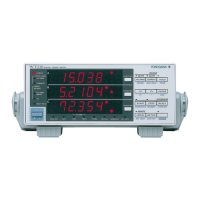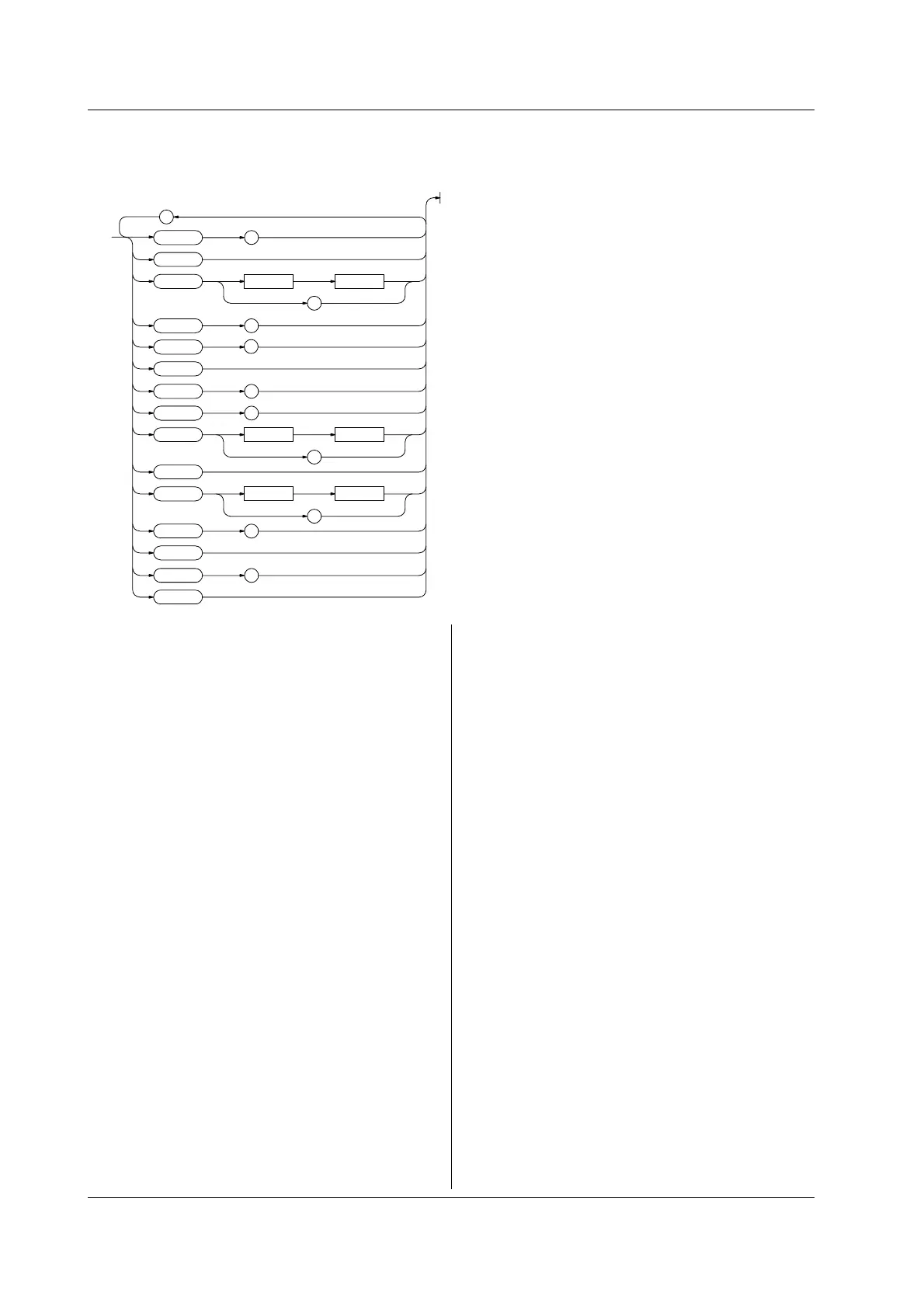14-42 IM 760401-01E
*CAL?
Function Execute zero-level compensation and queries
the result.
Syntax *CAL?
Example *CAL? -> 0
Description “0” is returned when the zero-level
compensation completes properly. Otherwise,
“1” is returned.
*CLS
Function Clears the standard event register, extended
event register and error queue.
Syntax *CLS
Example *CLS
Description • The output will also be cleared if a *CLS
command is appended after the program
message terminator.
• For details on the registers and queues, refer
to section 14.4.
*ESE
Function Sets the value for the standard event enable
register, or queries the current setting.
Syntax *ESE {<NRf>}
*ESE?
{<NRf>}=0 to 251
Example *ESE 253
*ESE? -> 251
Description • Each bit is expressed as a decimal number.
• For example, if “*ESE 251” is set, the
standard enable register will be set to
“11111011”. This means that bit 2 of the
standard event register is disabled so that bit
5 (ESB) of the status byte register will not be
set to “1”, even if a query error occurs.
• Default is “*ESE 0” , i.e. all bits are disabled.
• The standard event enable register will be
cleared when an inquiry is made using
*ESE?.
• For details referring the standard event
enable register, refer to page 14-45.
*ESR?
Function Queries the value of the standard event register
and clears it at the same time.
Syntax *ESR?
Example *ESR? -> 32
Description • Each bit is expressed as a decimal number.
• It is possible to ascertain the type of event
which has occurred, while SRQ is occuring.
• For example, if “*ESR 32” is returned, this
means that the standard event register is
“00100000” , i.e. the SRQ has occurred due
to a command syntax error.
• If a query is made using *ESR?, the standard
event register will be cleared.
• For details referring the standard event
enable register, refer to page 14-46.
14.3.15 Common Command Group
The commands in the common command group are independent of the instrument’s functions, and are specified in
IEEE 488.2-1987. There is no front panel key that corresponds to this group.
*CLS
*ESE <Space> <NRf>
?
*ESR ?
*CAL ?
*IDN ?
*OPT ?
*PSC <Space> <NRf>
?
*RST
*SRE <Space> <NRf>
?
*STB ?
*TRG
*WAI
;
*OPC
*OPC ?
*TST ?
14.3 Commands

